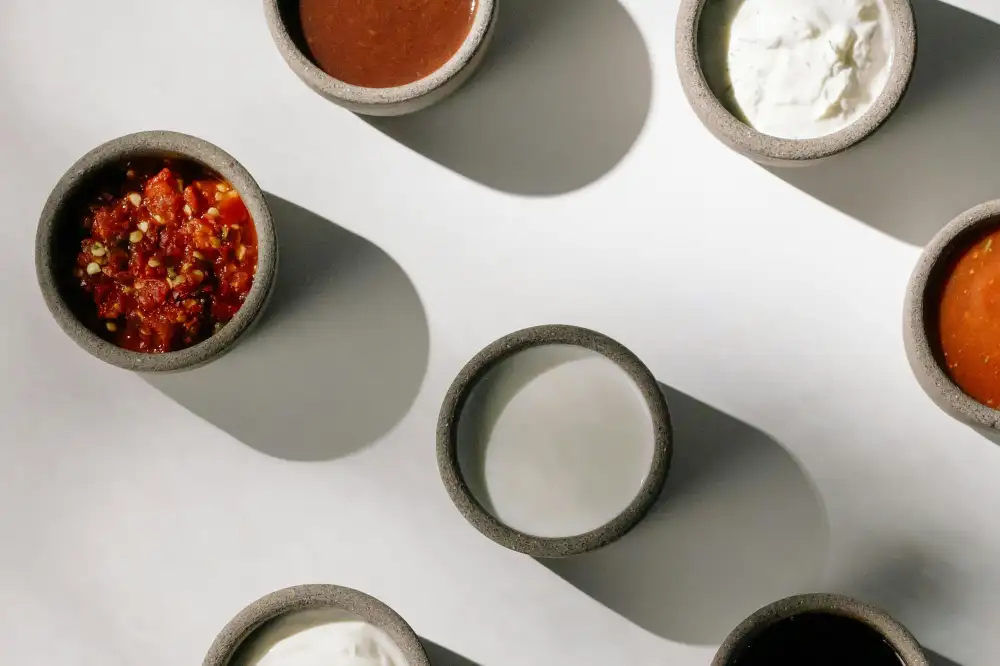Unleash the Flavors of Chinese Cooking with Irresistible Oyster Sauce Recipes

Oyster sauce is a rich and savory condiment that adds depth and flavor to a wide range of dishes. Originating from China, this versatile sauce has become a staple in many Asian cuisines. Made from oysters, soy sauce, sugar, and other seasonings, it offers a unique umami taste that can elevate the simplest of meals. Whether used as a marinade, stir-fry sauce, or dipping sauce, oyster sauce is sure to delight your taste buds and take your culinary creations to the next level.
History and Origins of Oyster Sauce
Oyster sauce, a staple in Chinese cuisine, has a rich history and fascinating origins. It is believed to have originated in the southern coastal regions of China, where oysters were abundant. The sauce was first created by reducing oyster broth until it thickened into a savory condiment.
The exact origins of oyster sauce are unclear, but it is thought to have been developed during the Qing Dynasty in the 18th century. Legend has it that a chef accidentally left a pot of oyster soup on the stove for too long, resulting in a thickened sauce with an intense umami flavor. This accidental creation soon became popular and was widely used in Cantonese cooking.
Initially, oyster sauce was made by simmering oysters in water until their essence was extracted. The liquid would then be reduced and mixed with soy sauce and other ingredients to create the final product. Over time, variations of the recipe emerged, with some adding additional ingredients like sugar or spices to enhance the flavor.
Oyster sauce gained popularity not only in China but also across Southeast Asia and eventually made its way to Western countries. Today, it is widely used in various cuisines around the world as a versatile seasoning and condiment.
The history and origins of oyster sauce highlight its significance in Chinese culinary traditions and its journey from a humble mistake to becoming an essential ingredient in countless dishes. Its unique umami flavor adds depth and richness to stir-fries, marinades, and sauces, making it an indispensable component of Chinese cooking.
Ingredients Used in Oyster Sauce
Oyster sauce is a versatile condiment that adds depth and umami flavor to a variety of dishes. It is made from a few simple ingredients, the most important being oysters. These bivalve mollusks are rich in natural glutamic acid, which gives the sauce its savory taste.
In addition to oysters, other key ingredients used in making oyster sauce include soy sauce, sugar, salt, and water. Soy sauce provides a salty and slightly sweet base for the sauce, while sugar balances out the flavors and adds a touch of sweetness. Salt is used to enhance the overall taste, and water is added to achieve the desired consistency.
To ensure quality and authenticity, some brands of oyster sauce also include additional ingredients such as caramel coloring or thickening agents like cornstarch or tapioca starch. These ingredients help give the sauce its distinct dark color and thick texture.
It's worth noting that not all oyster sauces are created equal. Some may contain artificial flavorings or preservatives, so it's important to read the labels carefully when purchasing oyster sauce. Opting for high-quality brands that use natural ingredients will ensure a more authentic and flavorful experience when cooking with oyster sauce.
With its simple yet flavorful combination of ingredients, oyster sauce has become a staple in Chinese cuisine and is now widely used in dishes around the world. Its unique taste profile adds depth and complexity to stir-fries, marinades, dressings, and even soups. Whether you're an experienced chef or just starting out in the kitchen, incorporating oyster sauce into your cooking repertoire will undoubtedly elevate your culinary creations.
How Oyster Sauce is Made
Oyster sauce is made by simmering oysters in water until they release their flavorful juices. The liquid is then strained and reduced to a thick, rich sauce. Some variations of oyster sauce may also include soy sauce, sugar, and other seasonings for added depth of flavor. The process of making oyster sauce requires careful attention to ensure the perfect balance of sweet and savory notes. This labor-intensive method results in a condiment that adds a unique umami taste to any dish it is used in.
Culinary Uses of Oyster Sauce
Oyster sauce is a versatile condiment that adds depth and umami to various dishes. Its rich and savory flavor makes it a staple in Chinese cuisine, but it has also gained popularity in other Asian and Western dishes.
One of the most common uses of oyster sauce is as a stir-fry sauce. It can be added to vegetables, meat, or seafood to enhance their flavors. The sauce caramelizes when cooked, creating a glossy glaze that coats the ingredients beautifully.
Oyster sauce is also used as a marinade for meats and seafood. Its salty and sweet notes penetrate the protein, infusing it with a delicious taste. Whether grilling, roasting, or pan-frying, marinating with oyster sauce adds an extra layer of flavor to your dish.
Additionally, oyster sauce can be used as a dipping sauce or condiment. It pairs well with dumplings, spring rolls, and other appetizers. Its savory taste complements the flavors of these dishes perfectly.
Furthermore, oyster sauce can be incorporated into soups and stews to enhance their richness. Just a small amount can elevate the overall taste profile of the dish.
With its versatility and unique flavor profile, oyster sauce offers endless possibilities in culinary creations. From stir-fries to marinades to condiments, this savory sauce is sure to delight your taste buds and elevate your cooking game.
Health Benefits of Oyster Sauce
Oyster sauce not only adds a rich and savory flavor to dishes but also offers several health benefits. Firstly, it is a good source of essential minerals like iron, calcium, and zinc, which are important for maintaining healthy bones and teeth. Secondly, oyster sauce contains high levels of omega-3 fatty acids that promote heart health and reduce the risk of cardiovascular diseases. Additionally, it is low in fat and cholesterol, making it suitable for those watching their weight or managing their cholesterol levels. Lastly, oyster sauce contains antioxidants that help boost the immune system and protect against cell damage. Incorporating oyster sauce into your cooking can be a delicious way to enhance both the taste and nutritional value of your meals.
Popular Recipes with Oyster Sauce
1. Stir-Fried Beef with Oyster Sauce: Tender strips of beef are marinated in oyster sauce, soy sauce, and garlic, then quickly stir-fried with colorful vegetables for a deliciously savory dish.
2. Honey Garlic Shrimp with Oyster Sauce: Succulent shrimp is sautéed in a sweet and tangy sauce made from oyster sauce, honey, garlic, and ginger. Serve it over steamed rice for a quick and satisfying meal.
3. Oyster Sauce Chicken Stir-Fry: This classic Chinese dish features tender chicken pieces cooked in a flavorful blend of oyster sauce, soy sauce, ginger, and garlic. Add your favorite vegetables for a nutritious one-pan meal.
4. Vegetable Fried Rice with Oyster Sauce: Jazz up your fried rice by adding a drizzle of oyster sauce during cooking. The umami-rich flavors will elevate the dish to new heights.
5. Grilled Salmon with Oyster Sauce Glaze: Brush fresh salmon fillets with a glaze made from oyster sauce, honey, and lime juice before grilling them to perfection. The result is a succulent and flavorful seafood delight.
These popular recipes showcase the versatility of oyster sauce in enhancing the flavors of various dishes. Experiment with these recipes or create your own culinary masterpieces using this delectable ingredient!
Tips for Cooking with Oyster Sauce
1. Start with a small amount: Oyster sauce is rich in flavor, so it's best to start with a small quantity and adjust according to your taste preference.
2. Use it as a marinade: Oyster sauce works wonders as a marinade for meats, seafood, and vegetables. Let the ingredients soak in the sauce for at least 30 minutes before cooking.
3. Pair it with stir-fries: Oyster sauce adds depth and umami to stir-fried dishes. Add it towards the end of cooking to preserve its flavors.
4. Enhance soups and sauces: A few drops of oyster sauce can elevate the taste of soups and sauces. Stir it in gently to avoid overpowering other ingredients.
5. Experiment with different cuisines: While traditionally used in Chinese cuisine, oyster sauce can also be incorporated into other dishes like pasta, noodles, or even as a dipping sauce for dumplings.
6. Store properly: Keep oyster sauce refrigerated after opening to maintain its freshness and quality. It can last up to six months if stored correctly.
7. Balance flavors: Oyster sauce is salty, so be mindful when adding additional salt to your dish. Taste as you go and adjust accordingly.
Remember, oyster sauce is versatile but potent, so use it sparingly and let its unique flavor shine through in your culinary creations!
In conclusion, oyster sauce is a versatile and flavorful condiment that can elevate any dish. Its rich umami taste adds depth and complexity to stir-fries, marinades, and sauces. With its origins rooted in Chinese cuisine, oyster sauce has become a staple in kitchens around the world.
Not only does oyster sauce enhance the flavors of your dishes, but it also offers several health benefits. It is low in fat and calories while being packed with essential nutrients like iron, calcium, and zinc. Additionally, it contains antioxidants that promote overall well-being.
To make the most of oyster sauce in your cooking, remember to use it sparingly as a little goes a long way. Experiment with different recipes such as beef stir-fry or vegetable lo mein to discover new ways to incorporate this delicious condiment into your meals.
Whether you are a seasoned chef or an amateur cook, adding oyster sauce to your culinary repertoire will undoubtedly delight your taste buds and impress your guests. So go ahead and unleash the flavors of Chinese cooking by incorporating irresistible oyster sauce recipes into your next meal!
Published: 16. 02. 2024
Category: Recipes



